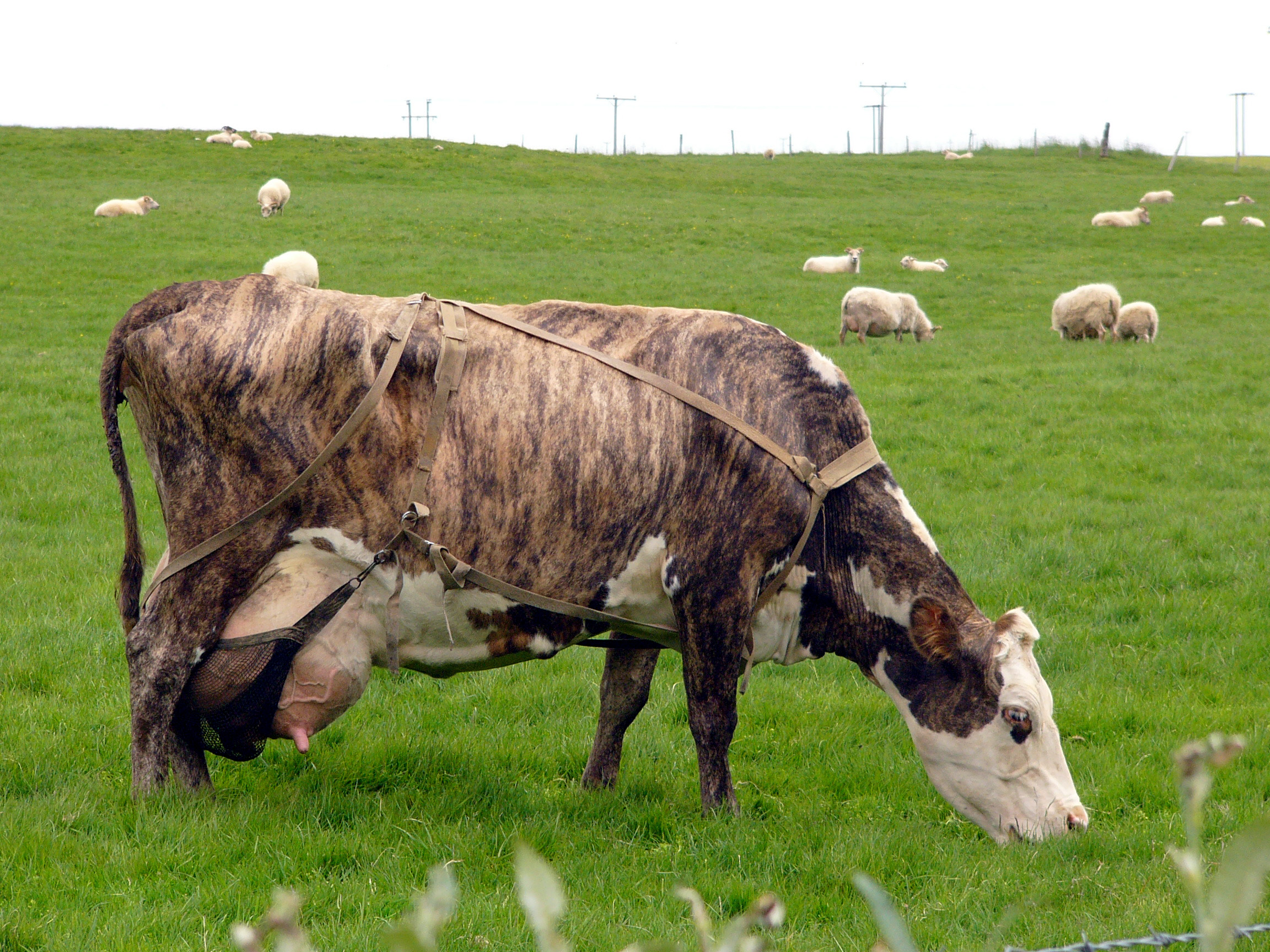Milk markets are not hard to udderstand
You can lead a cow to a supermarket, but you can't make it raise its prices. The supermarket, that is. Because if one supermarket did, its customers would all desert to the ones that didn't. So what's the point of the farmers' protest? What will change? Dairy farming is yet another industry going through a technological revolution; and when that happens, some lose out. But the ultimate result is cheaper (and better) products for consumers. And as Adam Smith reminded us, the sole end of production is consumption. Why undertake the bother and expense of production, otherwise?
True, there are other factors. The world is pretty flush with milk right now. And Europe is particularly flush, thanks to EU subsidies. Yes, there is less subsidy than there was, and it is less related to production – remember the Milk Lake and the Butter Mountain? An obscene waste of animal products. But we still have the Basic Payment Scheme, all those Agri-Environmental Schemes, Private Storage Aid (i.e. bribing processors to hold milk products back when prices are low), the School Milk Scheme, not to mention Import Tariffs against other world producers.
The result is that today, about a third of the income of England's dairy farmers comes through subsidies. If they sold their herds and retired to Bournemouth they wouldn't get them any more, so they carry on, producing more milk than the nation actually wants.
The dairy farmers' argument is that milk is difficult to transport – it is bulky and you have to keep it cool – so we need to produce milk locally. There is some truth in that, but it is a two-edged sword: because since supply sources are so restricted, you need to be prepared for some pretty spectacular price rises and falls from time to time. Like now. And if consumers cannot get dairy products from other producers because of import tariffs, consumers lose out too.
But back to technology. Britain is a terrible place to produce milk. The winters are cold and wet, so you have to bring your herd into shelters and give them heat, silage and hay (and muck them out), all of which adds to the cost. It's Adam Smith, again: why try to produce wine in Scotland, at thirty times the expense of vineyards in sunny France?
To cut the cost, some enterprising dairy famers are creating farms that are a hundred times larger than the norm, usually sited in sunnier parts of the country, with huge winter sheds and new technology such as dry bedding, feed derived from other farm by-products, heat recycling, and capturing methane for fuel. It is no wonder that small-scale dairy farmers are complaining that they can't compete.
If we scrapped the web of subsidy that featherbeds inefficient production systems, we would produce what we needed, in the quantities we needed, at a sustainable price, and with very much greater efficiency. And taxpayers would be better off, too. Yes, some people would have to find new jobs. It happens. Ask the people who used to sell encyclopaedias.

